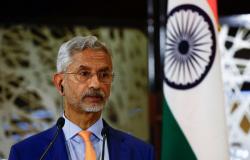One year after the Hamas attack of October 7, 2023, the deadliest in Israel’s history, the Middle East is experiencing its longest war. Journalist, former editor-in-chief at MondeSylvain Cypel is a long-time observer of this region. The author of the State of Israel against the Jews (La Découverte, 2020) depicts a society under the influence of the extreme right, conditioned by half a century of occupation and colonization of the Palestinian territories.
October 7 dented the myth of Israel’s invincibility. With what consequences in Israeli society?
Security forces, whether the army or domestic security services like the Shin Bet, have been caught in bankruptcy. Curiously, it is more the army than Benjamin Netanyahu which has been held responsible for this bankruptcy. The Israeli prime minister had received several warnings, which he considered null and void. But, in public opinion, it is the image of the army that has been damaged. However, this has always played a fundamental role in Israeli political life.
This failure refers to that of October 1973. It is no coincidence that Hamas chose October 7 to go on the attack. It was on the same date that Anwar Al Sadat launched Egyptian troops on Israel in 1973, fifty years ago. It was a first shock for the Israeli army, which had found itself disorganized for three days. In 2021, Benny Gantz, then Minister of Defense, inaugurated the barrier surrounding Gaza by presenting it as impassable. It was supposed to be the most secure, with the most extraordinary technology in the world. Hamas, however, crossed it with ease. Hence the astonishment and rage that followed among the population.
However, we know today that the Israeli intelligence services had been alerted to training carried out by Hamas fighters…
The most serious thing is that Netanyahu had been warned by the Egyptian intelligence services and that he did not take it into account. This is also why he keeps the war going. When it is completed, a commission of inquiry into October 7 will be inevitable.






